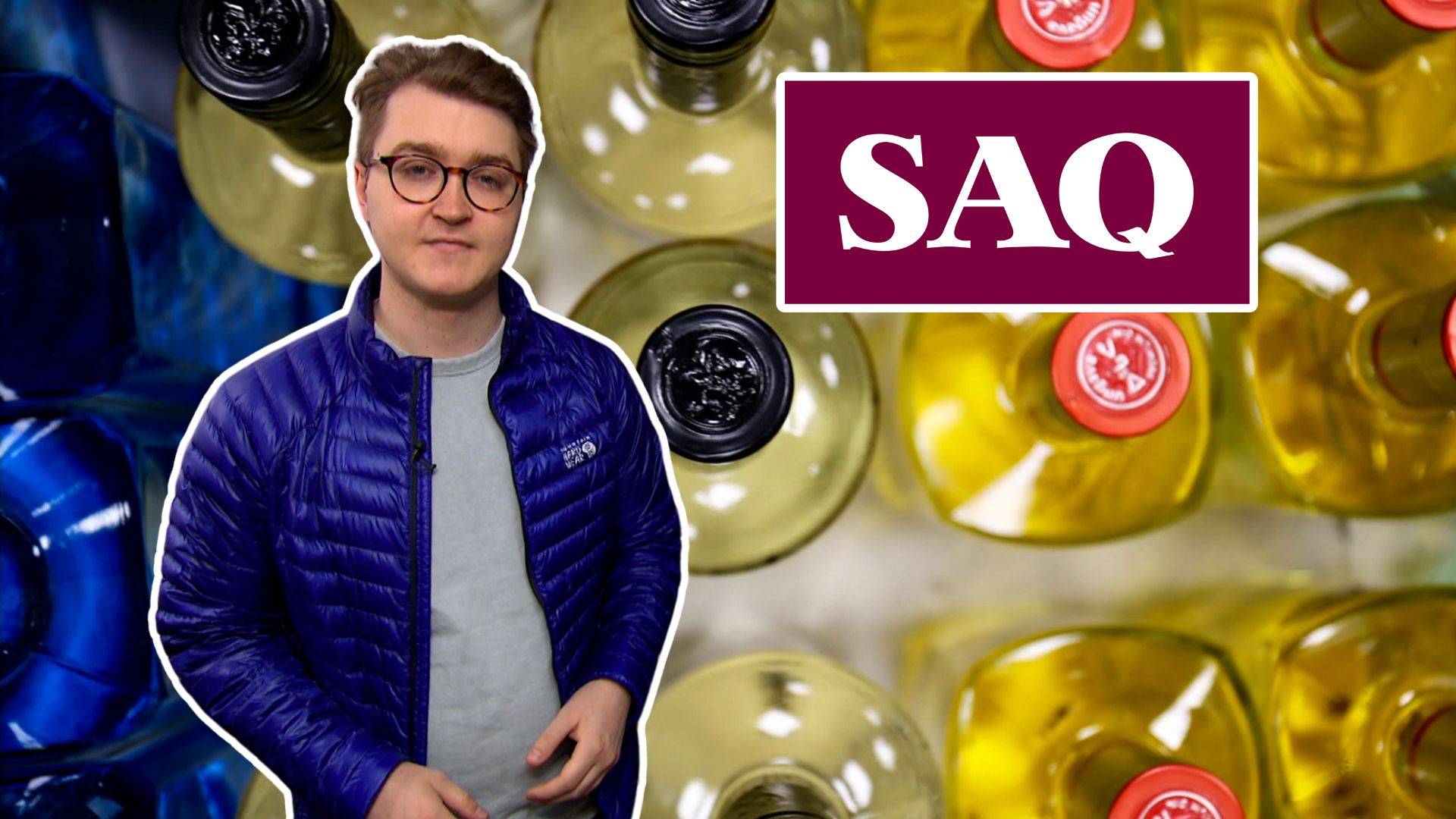Digital Products

This is one of the only ways Quebec distilleries can sell their products. But some producers are concerned, as the Quebec Association of Alcourts aims to cut down on a glut of locally produced spirits amid sluggish sales and a crowded market.
SAQ has a monopoly on liquor stores in Quebec. What if they refuse to sell your product?

Alison Northcott · CBC News
·

At his boutique distillery in Quebec’s Eastern Townships, Samuel Gaudette starts with locally grown corn, turns the grain into alcohol, and adds ingredients like juniper berries, Labrador tea, and prickly pear to create an agave sprite. We produce gin.
Gaudette, one of the founders of Bedford, Quebec-based Commonte Distillery, sells ready-to-drink cocktails and spirits at Quebec government-owned liquor stores. Quebec Liquor Associationknown as SAQ.
This is one of the only ways Quebec distilleries can sell their products. But the SAQ is trying to reduce a glut of locally produced spirits amid slumping sales and a crowded market, which has some producers concerned.. They are asking the state to allow them to sell their products elsewhere, including online and directly to customers at farmers markets.
“You never know when the phone is going to ring,” Gaudette said in a recent interview in the distillery’s tasting room.
He is worried that SAQ will call him and say they will no longer carry gin or other products.
“I’m kind of scared right now.”
The number of producers making distilled spirits has exploded. According to the Quebec Micro Distillery Federation, there are now nearly 70 in the province, up from just two in 2011.
Digital Products Quebec spirits production boom
Sales of spirits in Quebec increased by 75% between 2019 and 2022, according to the SAQ.
“However, the decline over the past year, combined with more difficult economic conditions, indicates some slowdown in local purchases on our network and online at SAQ.com,” SAQ said in a statement.
SAQ, which currently sells more than 600 types of Quebec spirits, says its shelves are out of stock and sales are down overall since the peak of the COVID-19 pandemic. The company plans to remove up to 200 products and reduce the number of items it sells.
“The removal of these products will allow us to reallocate 15% of our shelf space to products that are more sought after by our customers,” an SAQ spokesperson said in an email.
The changes have producers like Gaudette concerned about which products will be cut and what will happen if gin, whiskey and vodka are removed from shelves.
“We’re hitting a wall right now with the law and the government,” he said.
Watch | Does SAQ’s alcohol monopoly still matter?
;Resize=(620))
Does SAQ’s alcohol monopoly still make sense?
While some have called for Quebec to follow other provinces and liberalize its rules for alcohol sales, the government has a clear incentive to maintain the status quo.
Digital Products There are few options beyond the SAQ.
As it stands, Quebec distilleries can only sell their products from their own facilities by selling them in SAQ stores or by exporting them to other provinces and countries. Unlike some other provinces, we are not allowed to ship directly to customers in Quebec through online sales.
SAQ now plans to restrict products, prompting state governments to change rules and give producers more channels to sell their products, including restaurants, festivals, farmers markets, and online direct sales There are increasing calls for this.
“These channels don’t exist in Quebec, so this problem is unique to Quebec,” said Vivek Astvanche, an associate professor of quantitative marketing at McGill University in Montreal.

Paul Silka, founder and master distiller of Chilka Distillery, which makes whisky, vodka and gin, said these alternative distribution channels were vital to keeping the industry the government helped build afloat. .
Mr Circa said SAQ had previously taken advantage of local producers to increase sales and attract customers, but was now prepared to leave some producers behind.
“They encouraged us to create interesting, high-quality products that consumers couldn’t get enough of,” Circa said.
“And now they’re saying, ‘Well, there’s too much.’ So think about who’s going to suffer, it’s the local producers.”
Claudia Loupre, a spokeswoman for Quebec’s finance minister’s office, said in an email that the government is already accommodating producers by allowing them to sell products from their production facilities.
But producers say their path to doing so is limited because they still have to pass more than half of the sales price to SAQ.
The Quebec Micro Distillers Association said it is working with the SAQ to determine which products will be on store shelves and which will remain on store shelves. SAQ said its plans include withdrawing low-selling products to make room for remaining products to gain traction.
The union’s vice president, Madeleine Dufour, said the industry could be at risk if the government did not change the law.
“Let’s explore another way to sell our products. This is what we’ve been waiting for for a long time,” Dufour said.
Digital Products About the author

Alison Northcott is a national reporter for CBC News in Montreal, covering current events and politics across Quebec. A Winnipeg native, she has over 15 years of experience in the journalism field.
Source of this program
“I’m obsessed with the items because they’re amazing!”
“This is one of the only ways Quebec distilleries can sell their product. But the Quebec Alcohol Association aims to reduce the excess of locally produced products…”
Source: Read more
Source link: https://www.cbc.ca/news/canada/montreal/distilleries-quebec-saq-1.7205388?cmp=rss